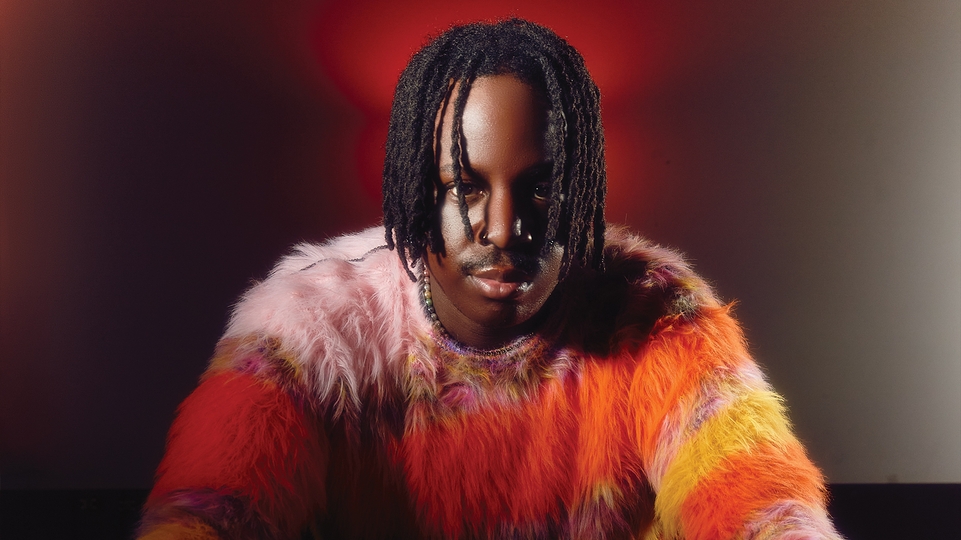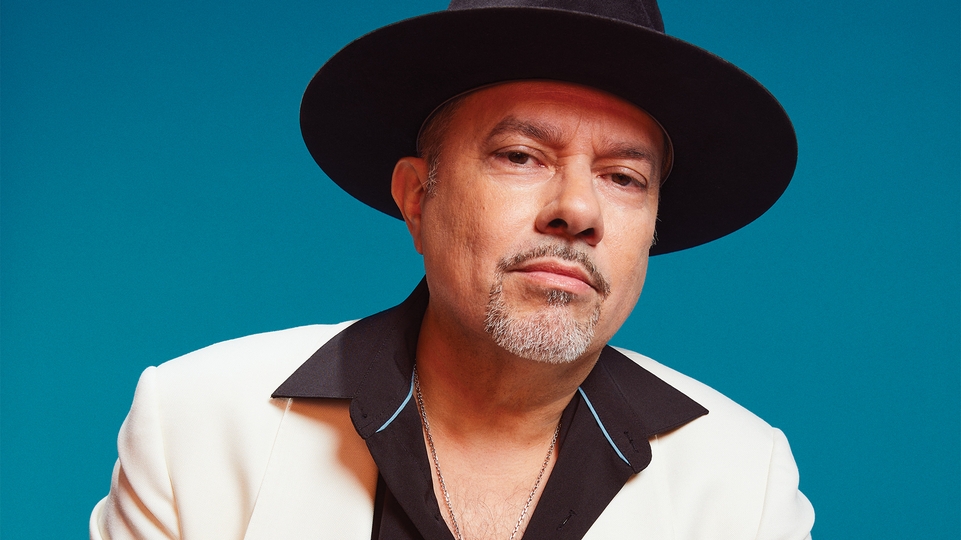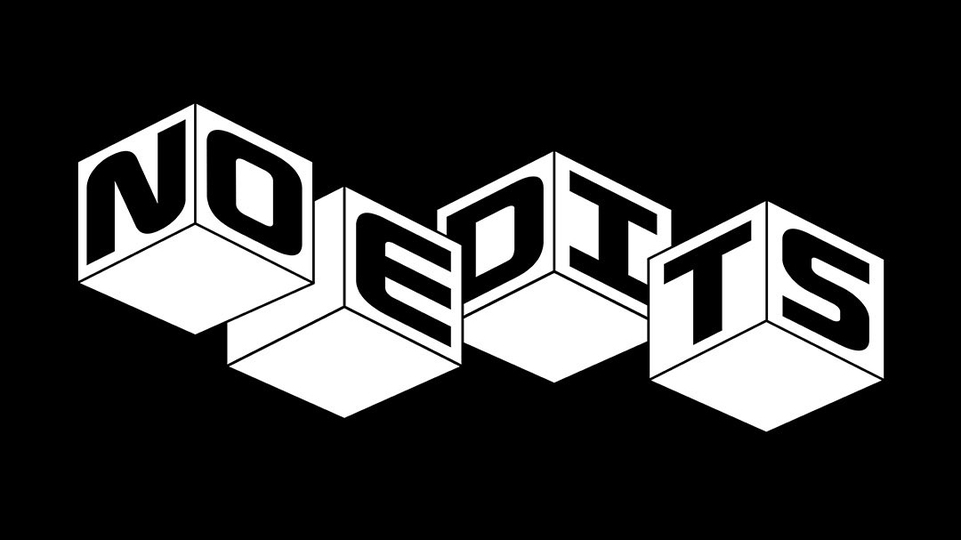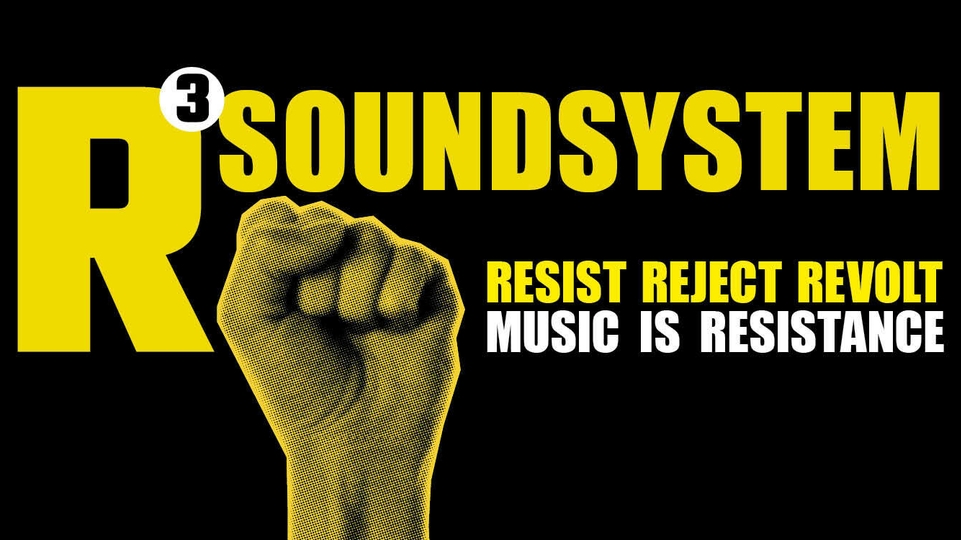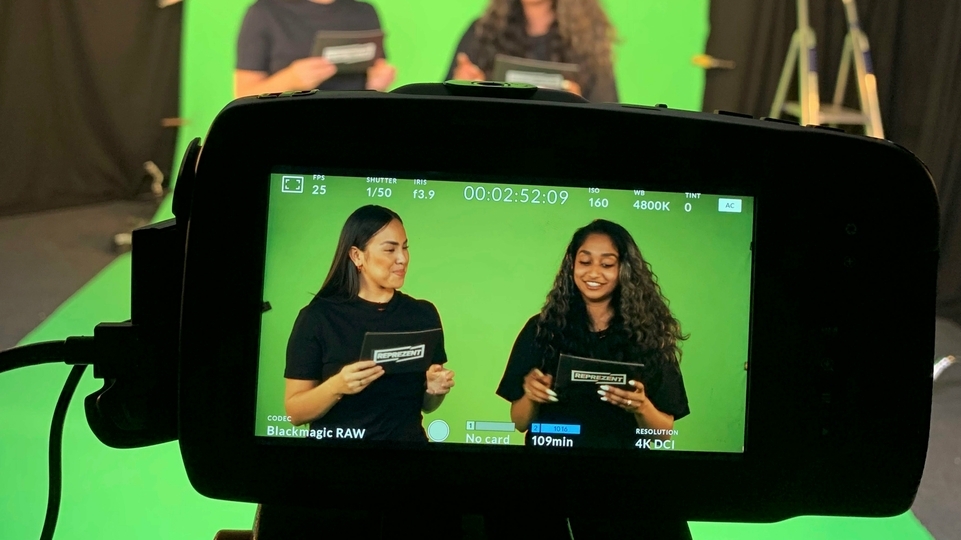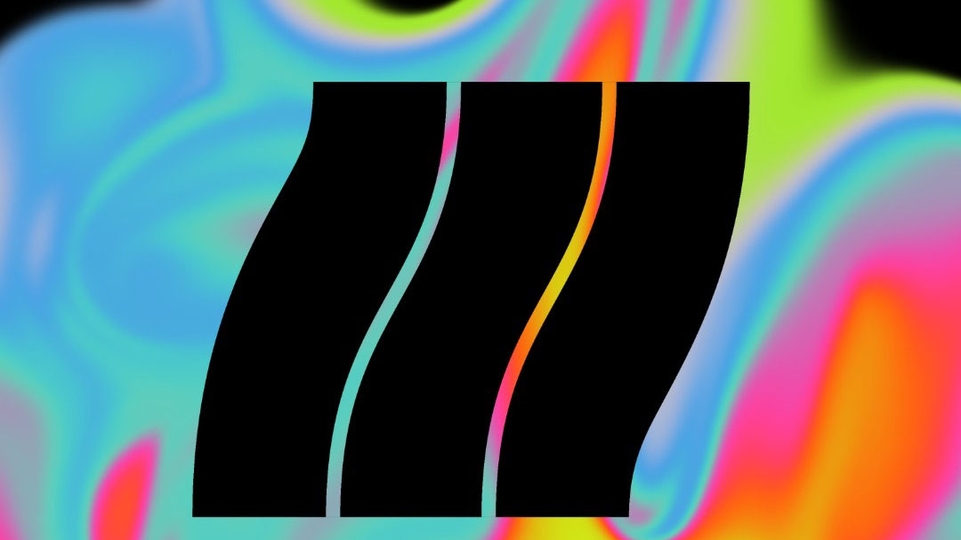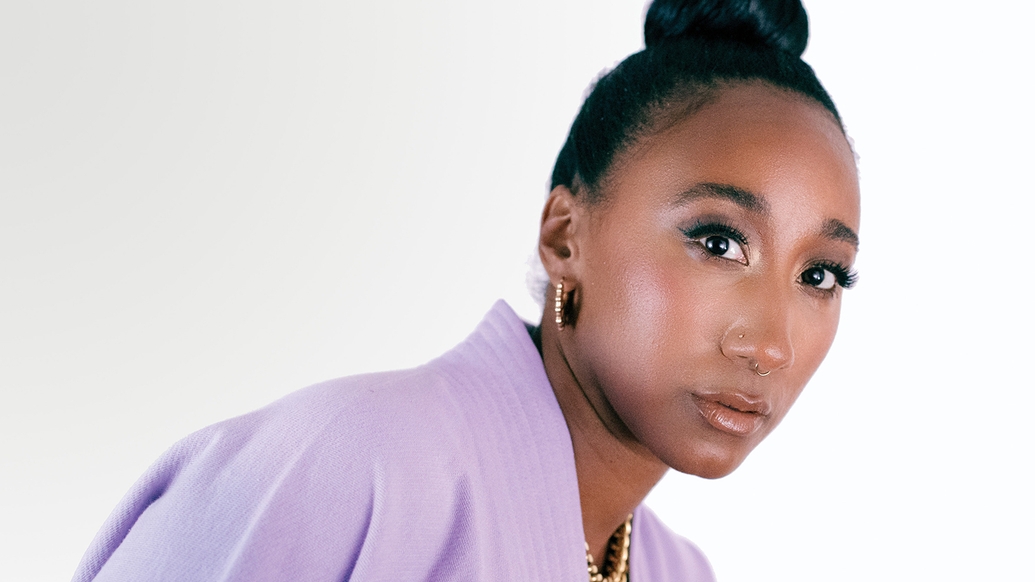
Jamz Supernova: a shining star of British radio
Jamz Supernova is spearheading the next generation of radio DJs with her residencies on BBC Radio 1Xtra and Selector Radio. While equally at home behind the decks in a club, she’s used her time in lockdown to bolster her Future Bounce label and perfect her radio shows, recording podcasts and voiceovers and helming TV docs along the way. It’s a career that Jamz seems born to do, but it hasn’t always been plain sailing for her — or happened overnight. Chal Ravens takes a (socially distanced) stroll in south London with the charming host to discuss her rise through the radio ranks, and finding her place as a club DJ
It’s an uncomfortable fact of the situation that some people have had a good pandemic. The rhythm of our daily lives has been disturbed, maybe forever, but for a lucky few that disturbance has been a boon. The type of person this applies to has: a steady job, the ability to work from home, an optimistic mindset and — most importantly — the kind of work ethic that was already pushing them to exhaustion, until the virus cancelled all plans. Cut to Jamz Supernova: the BBC Radio 1Xtra DJ whose Tuesday night show has been a lifeline during this year of remote listening and BYO vibes.
On the way to meet her (outdoors, at a distance), a flick through an old interview reveals that most of her answers are littered with exclamation marks (mental note: must cut down). So the afternoon looks set to be jolly — a pleasant back-and-forth in the hands of a permanently enthused radio pro. But you don’t get to be a BBC radio DJ, label boss, podcast host, voiceover artist, TV presenter and A&R scout — all by the age of 30 — on enthusiasm alone. Positive vibes don’t pay the bills. There’s steel behind this smile.
Born Jamilla Walters, raised in south London, and named by a chance encounter with a space encyclopaedia, Jamz Supernova is one of those terminally busy people for whom lockdown has meant a well-earned rest. Previously, on any given week, she might have been recording a voiceover, scouting new talent for Sony RCA or performing in Cape Town or Tbilisi.
As a DJ she moves fluidly between dancefloor riddims like kuduro, dancehall and UK funky, and radio-friendly electronic soul: broken beat, jazzy house and psychedelic hip-hop. Her record label Future Bounce straddles both, home to the nocturnal glow of singer-producer Sola as well as the pounding funk mutations of Bamz.
On 1Xtra, Jamz represents that modern strain of R&B often awkwardly described as “future” or “alternative”, with voices like NoName, Nubya Garcia and serpentwithfeet slotting into an offbeat lineage going back through Odd Future, The Neptunes and Erykah Badu. Her working rhythm is set by the show, which has gone out week after week during one of the hardest years in memory, including a special three-hour show at the height of the Black Lives Matter protests in June.
“I always found comfort in the radio,” says Jamz, revealing a voice slightly less mellow and languorous than the one most people know. “Instinctively, I wake up and put the radio on. If I leave my dog alone I’m gonna put on the radio for him.”
At the start of the pandemic, she was sent some mics so she could pre-record the show at home. These days, as so many workplaces adjust to the long-term reality of COVID-19, she gets a cab to the studio once a week, recording in an empty room with her producer on the other side of the glass. She’s not really alone, of course, because out there somewhere are her listeners. Who are they? “I know I have a lot of actual artists listening,” she says. “But I think who I’m talking to is a mirror of me, someone who’s on a quest to find this music.”
We meet in Crystal Palace Park, not far from the patch of south-east London where Jamz grew up and close to her alma maters: the BRIT School, a bus ride away in Croydon, and Reprezent, the Brixton community radio station where she first learned the ropes alongside DJs like SHERELLE and Neptizzle. Travel has become a rare luxury, but it’s still weird to be excited about going to Penge, a place mostly associated with falling asleep on the night bus.
Jamz bounds up to the gate with her dog, a one-year-old cavapoo called Ché. He leads us on the hunt for squirrels and dogs and remote-control cars, and the famous Crystal Palace dinosaurs — the first-ever full- scale replicas of the extinct animals, installed in the 1850s. Jamz must’ve been round this park hundreds of times in the past year.
Lockdown suits her fine: she’s been busy with the label (11 releases in 11 months), learning new dishes (lentil jerk bolognese), bingeing TV shows (Harlots, It’s A Sin), and working out (“I’m never going to the gym again,” she swears). The only hard part is “the monotony. What’s the difference between Friday and weekend?”
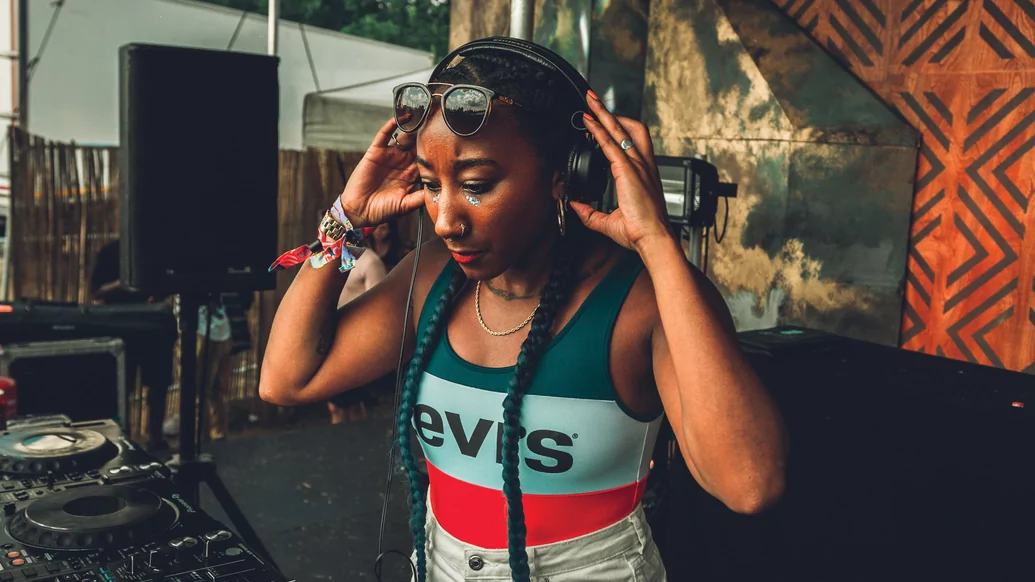

LOCKDOWN
Lockdown has also been an enforced period of reflection after a few years of turbulence. In late 2017, Jamz broke her heel in a car crash and couldn’t walk for three months. “Mentally — and I guess it’s a similar thing with the pandemic — I just thought about getting through it. But when I got to the end of the year, I was just like, ‘I’ve got nothing left for anyone, or myself’.”
A busy year on the DJ circuit was followed by a patchy one; meanwhile, she was trying to switch up her trusty set of festival heaters for a deeper and more eclectic crate. “I had a run of really shit gigs,” she says flatly. “At Parklife I played the Valley Stage and it was very 1Xtra — I was between Stefflon Don and somebody else in that realm, and it just wasn’t working. My confidence felt knocked.”
When Jamz doesn’t know what to do next, she works through her options with the logic of a chess grandmaster — no rash decisions, no self-pity. Self-help gurus would say she has a “growth mindset”. So when her journey hit a bump, she turned to a life coach, a former BBC employee who helps creative types suss out their career goals. “We really started to unpick where these insecurities were coming from — what am I pinning my confidence on? Am I pinning it on getting bookings? Is that what my value is, or can we go deeper than that?”
The life coach taught Jamz how to visualise her future — not the law-of-attraction “manifesting” that generates Pinterest boards full of Porsches, but simple roleplay games for imagining what the future holds, “like, when this happens, how will you feel? It switches something in your brain to make it feel more believable.” She gave up her habit of meticulously planning her sets and followed her coach’s advice to just freestyle and see what happens: “It was quite a vulnerable space to be in.”
Next, she called her long-time mentor Toddla T, a Radio 1 stalwart with 10 years of BBC experience in the bank. “If I’m in a pickle he’ll be the first person to give me advice,” she says. “He was like, ‘Jamz, one year I played every single show, and the next year I had nothing. It’s a cycle. What are you going to do in your downtime?’” The problem, as it boiled down, was that Jamz’s radio reputation preceded her. Bookers didn’t understand that the warm-glow soul songs she plays on a Tuesday are nothing like the bruk-out movers she brings with her on a Friday.
She started a monthly mix series called Club Jamz to make herself clear. “Club Jamz did what it said on the tin, and it forced me to find the music that I genuinely wanted to play,” she says. A trip to Tbilisi, the techno-friendly capital of Georgia, yielded one of her best-ever sets. “I was able to read the crowd and vibe off them — it felt like this amazing energy that I’ve not ever had before.”
By spring 2020, Jamz had her roadmap back to the dancefloor. She kept the mix series going and launched a year-long series of club-focused releases on Future Bounce with Hagan’s slinky UK twist on gqom mechanics. “Should I do a club series during a pandemic, when there are no clubs? If I’d asked someone’s advice they probably would have told me to quit while I was ahead,” she laughs. “But lockdown gave me a chance to go full throttle, not have one foot in one world and one in another. The mixes are completely, unadulteratedly me.”
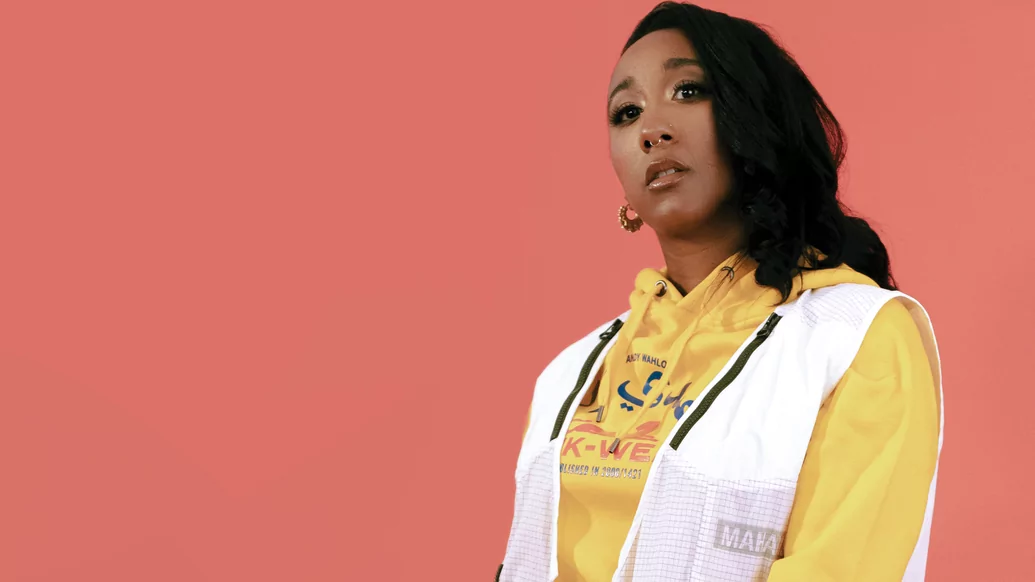
GRATITUDE
We’ve reached another of the park’s unlikely sights — the red ochre sphinxes and headless statues that guard the steps to where the iron-and-glass Crystal Palace once stood. Jamz has been taking people around this park for years; she even came here on her first date with her partner, club producer and More Time Records co-founder Sam Interface.
When your own local is Finsbury Park — probably London’s least inspiring patch of green — the upgrade is almost overwhelming. The bootleg sphinxes are magical. Motorbikes rev in the distance, churning mud around the athletics ground where Depeche Mode once played. It feels good to be surrounded by living things, stuff happening: ideas for the day’s gratitude list. It’s one of those grim-sounding self-help tasks that actually does work, unlike the Porsche moodboard.
Jamz does her gratitude lists, too. “That's my thing,” she says, confirming the hunch. “That’s what’s always got me through testing times — really knuckling down to the basics of what I’m grateful for. In the pandemic it’s been like, okay, what can I control? What am I grateful for? I have a job, I have a house, I have a partner. I have a family out there, everyone’s healthy. I love my job, I need to show up for my job every week. Whenever I’m down, that’s the kind of thing that pulls me out.”
It’s a simple practice: jot down three things you’re grateful for, and feel the buzz of appreciation for the everyday: a new favourite song, a voice-note from a faraway friend. Alongside working with the life coach, Jamz’s mental interventions have helped her take stock of her achievements: “That’s something I never used to do before — I used to always be onto the next.”
Cultivating this attitude also means that when life gives her lemons, she knows what she’s drinking. When the pandemic hit and her tour diary got scratched out, Jamz invested the spare hours into Future Bounce instead. Every month for the past year she’s put out a pair of drum-focused club tracks, placing underground talent like Cape Town’s Rose Bonica alongside established players like first-wave funky star KG and Jersey club’s finest UNIIQU3, whose ‘B2B’/’Black Roses’ collaboration feels like a preordained meeting of minds.
“Jamz is a boss,” says KG, aka Karen Nyame. “I’m compulsive when it comes to attention to detail, I need things in order. She’s so thorough, right down to the way she applies herself to her sets.” After six years away from music, collaborating “with another sick Black woman in dance music, on another Black woman’s label — it’s a major milestone,” says the London producer.
Jamz’s work ethic goes bone-deep. She started earning money at 11, first with a paper round and then as an usher and in a health food shop. “My mum wouldn’t let us say ‘Can’t’,” she notes. But her industriousness is just as much a reflection of the entrepreneurial mindset that’s familiar to a generation of young people who’ve lived through two financial crashes and never known job security.
Her latest endeavour speaks to exactly these people: a podcast called DIY Handbook, launching this spring off the back of her DIY Generation series on 1Xtra, where she squeezes advice and motivational tidbits from actors, activists, software developers and other self- made success stories.
The podcast will offer deeper conversations on the “back end” of success — topics like dealing with rejection and how to say no. But does the name reflect a taste for self- reliance over collectivism? “You have to use the word DIY quite loosely,” she laughs, pre-empting the criticism. “I don’t think it’s possible to completely do it on your own, but the DIY ethos is about getting things started yourself. No one is an island.”
She’s noticed this mentality taking shape in certain pockets of music too, with DJ collectives like 6 Figure Gang and Boko Boko leading the way. “That’s how it should be done. It’s lonely to do it alone, and to have it all for yourself. I didn’t really have that when I was coming up, it was more dog-eat-dog.”
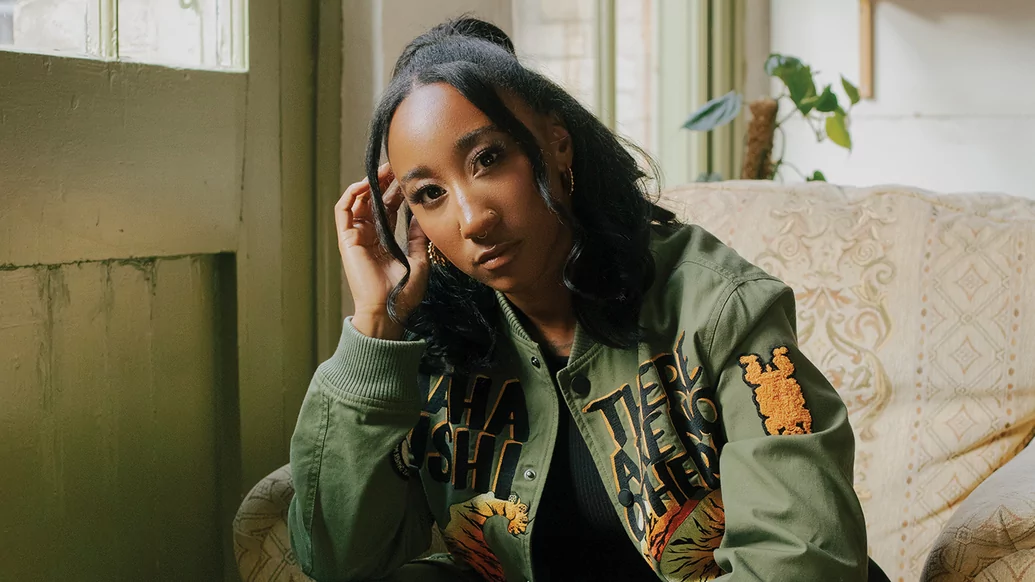

"We looked at music that spoke to pain, we looked at music that spoke to protest. And then music that spoke to peace — Black excellence, Black pride. It was the most painful thing I’ve ever had to make, but I think it will always be my proudest moment on the radio.”
BLACK PRIDE
At the northern edge of the park lies the rusty skeleton of Crystal Palace Bowl, an outdoor stage ringed by an ornamental lake, where Bob Marley played his last London concert, as Jamz points out. Last year a blue plaque ringed in red, green and gold went up to commemorate that performance, which kicked off a decade of overtly political gigs on the same stage. Under Ken Livingstone’s Greater London Council (GLC), the park put on a “republican rock fest” on the day of Charles and Diana’s wedding and a Free Nelson Mandela benefit gig featuring Jimmy Cliff and Gil Scott-Heron. But the stage has fallen into disrepair in the years since the GLC was torn up by ‘80s PM Margaret Thatcher; the only recent intervention is the plaque.
Last summer, as Black Lives Matter protests erupted around the world, Jamz started having Friday night WhatsApp calls with her family, “drinking loads, everyone shouting — it got a bit Question Time.” The conversations gave her a new perspective on her family’s different experiences of race. “I didn’t realise some of the stuff that my little brother had felt about himself as a Black man in the world,” she says, describing him as a serious Bob Marley fan, who “knows the deepest tracks ever that nobody else has heard. But when people find out that his dad’s white, they’re like, ‘Oh, so you’re not really Black’.”
On the Tuesday after the killing of George Floyd, when the music industry held a “blackout day” intended to “provoke accountability and change”, Jamz was on the radio as usual. For three hours she played music that reflected the sorrow and the solidarity of the moment, “telling the stories and the feelings through music, because I didn’t want to talk. We looked at music that spoke to pain, we looked at music that spoke to protest. And then music that spoke to peace — Black excellence, Black pride,” she recalls. “It was the most painful thing I’ve ever had to make, but I think it will always be my proudest moment on the radio.”
Her evolution as a DJ has happened in parallel with the music industry’s attempted reckoning with racism, and with it has come an enhanced sense of belonging in electronic music — not R&B, and not any other genre coded as Black, she points out, but the broad umbrella term. “I never used to feel like I had a place,” she says. And now? “I don’t care. I’m taking it.”
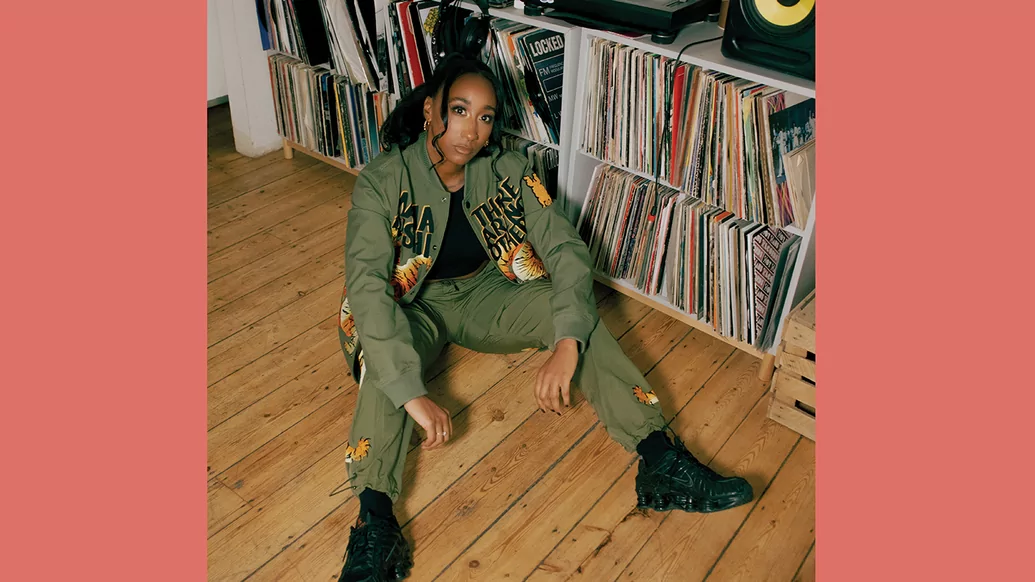
Jamz grew up in one of the most ethnically diverse areas of London; New Cross, where she was born, is infamous for a horrendous house fire, suspected to be arson, which killed 13 young Black people in January 1981 (as recently depicted in Steve McQueen’s Small Axe series). Jamz grew up between New Cross and Deptford in a “rainbow family”, as she puts it, with grandparents from Jamaica, Cuba and Ireland.
Her first clubbing experiences were local, starting with dancehall parties at Le Fez in New Cross — now a Sainsbury’s Local — before graduating to Rinse FM raves and UK funky nights at the O2, back when going out meant dressing up. “You’d get your bodycon out. Guys in sunglasses,” she laughs. “I had all the CDs you’d get outside the raves. You couldn’t find the songs, you didn’t even know who the artists were.”
Radio was the rhythm of her daily life: in the car to school she’d switch between Xfm (her mum and stepdad’s pick) and Choice, the station that took Black British music from pirate radio into the mainstream, and the blueprint for 1Xtra when it launched in 2002. “That was a time when DJs had records that nobody else had. When I was doing my college work I’d listen back to people like G Child and Ronnie Herel, obsessed with trying to find the records — then when they were finally out I’d be on LimeWire trying to get my hands on them.
As a teenager she wanted to be a TV presenter, “a bit Trevor Nelson, a bit June Sarpong.” (Jameela Jamil? “No comment!”) But at 16, a chance visit to the BRIT School and a glimpse of their radio facilities brought her into the ranks of the real-life fame academy: Adele, Katy B, FKA twigs and countless behind-the-scenes players used it as their career launchpad. “Everyone’s hustling, everyone knows what they want,” she remembers, “so being around that makes you step up a gear.”
At first the plan was to become a producer, but landing a show on youth station Reprezent gave her a taste for getting on the mic — even when she was told she didn’t have a voice for radio. “Tell me ‘no’ and I’m like, fine — I’ll show you,” she laughs. The thing is, “there is no voice for radio. There is no way to be on the radio. DJ Target might stumble over his words — but he’s endearing, he’s excited, he’s in the mix. Toddla T might drop off words — but he’s colloquial, that’s how he sounds off-air.”
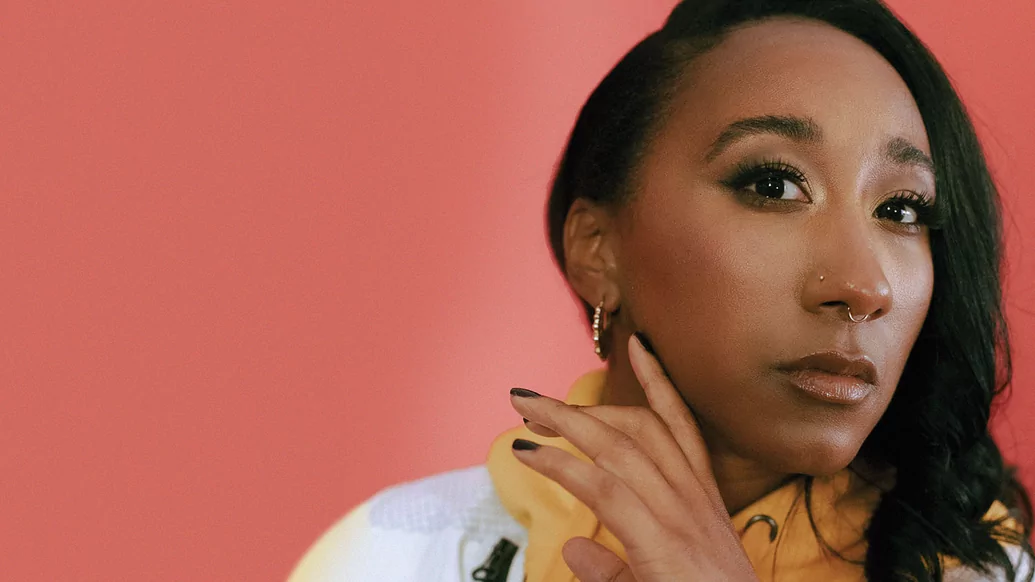

INTERNSHIP
The point was proved when she started an internship at the BBC, where the dreary task of backing up old shows gave her a chance to hear early broadcasts by DJs like Mistajam. “He’s one of the absolute best in terms of being a broadcaster, telling you what’s coming up, signposting it. But I heard his first show and was like, ‘You don’t sound like that now!’ I used to get frustrated with myself thinking I’m never gonna get good, I’m never going to sound how I want. But hearing that it was like, it’s just time. I knew I would get better over time.”
She convinced herself she’d have her own show by 21 (“They’re gonna see I’m a star, they’ll give me a show, and that’ll be me set”) but in the end it took five years to get a slot, during which time she produced almost everyone else on the station, including a long stint with Toddla T. “But I’m glad,” she says. “If I’d got a show at 21, I would have been a dickhead, number one. Two, I wouldn’t have had anything to say. I needed to have lived, to be aware of my surroundings, to be able to tell stories, listen to conversations, you know — observe the world around me.”
The Jamz Supernova show finally launched in May 2015, but it had an unintended effect — she lost all her DJ gigs. The afternoon R&B slot on 1Xtra apparently proved too confusing for promoters looking for an easy pigeonhole. Fine: so the DJ career would have to be built up separately. Jamz wasted no time figuring out an alternative route, and started booking her own club-night, Future Bounce, in the basement of Birthdays in Dalston, putting herself on the bill alongside other drum-addicts like Roska, NAINA and Lisbon’s Branko.
A decade on from picking up her first BBC lanyard, Jamz gives off every appearance of being sorted. She’s had the good fortune to get her foot in the door early, leaping straight into the arms of the state broadcaster while keeping up a plethora of side gigs. But somehow, all of that isn’t enough to make her feel secure. “Long gone are the times when you get to be on the BBC and suddenly everyone knows who you are. There’s so much work you have to do,” she says. Recording and listening back to every show while squeezing in her label duties, DJing, touring (not to mention her other show, a weekly slot on the British Council’s Selector Radio) — it’s undoubtedly a grind, no matter how much fun it looks.
The music industry has always been a gig economy, with little chance of a job-for-life, but increasingly it feels like every career in the business requires a level of juggling and risk-taking that would make a circus clown turn green. There’s a pressing requirement to sell yourself and become a brand. That means being visible all the time — not only showing off your work, but keeping followers “engaged” with selfies and steady streams of novel content. Jamz is blunt about the effects of social media. “I don’t think it’s good for my mental health. I think so much of what we do has to come from here — your source, your gut, who are you when you’re just being you, without being swayed. And you go on social media and it’s just carbon copies.”
The need to maintain a public image while also making art and paying the bills can feel like an impossible demand. When you invest so much of yourself into your work, it’s hard to cope if things don’t work out; this much is argued in a recent book, ‘Can Music Make You Sick? Measuring the Price of Musical Ambition’. The researchers behind it discovered that solo artists, songwriters and DJs are more anxious and depressed than other musicians, with a staggering 85% of DJs reporting high levels of anxiety.
Jamz nods in recognition. Her dad likes to remind her that she’s more than just her job, “but there is always a tiny voice that’s like, well, I’m not,” she says, laughing over Zoom when DJ Mag calls her a week later. “I’m like, am I really sad? Is this a sad life that I’m living? But this is the life that fulfils me, because everything that I do musically is my personality. I’ve chosen to make that personality a commodity.”
It’s an attitude that puts her at risk of exhaustion, and she knows it. “It's always been in the back of my head, not burning out. With the podcast, even though we’re talking about business and being creative, it always ends up with self-care — taking time for yourself, not being hard on yourself. Therapy’s come up quite a few times.”
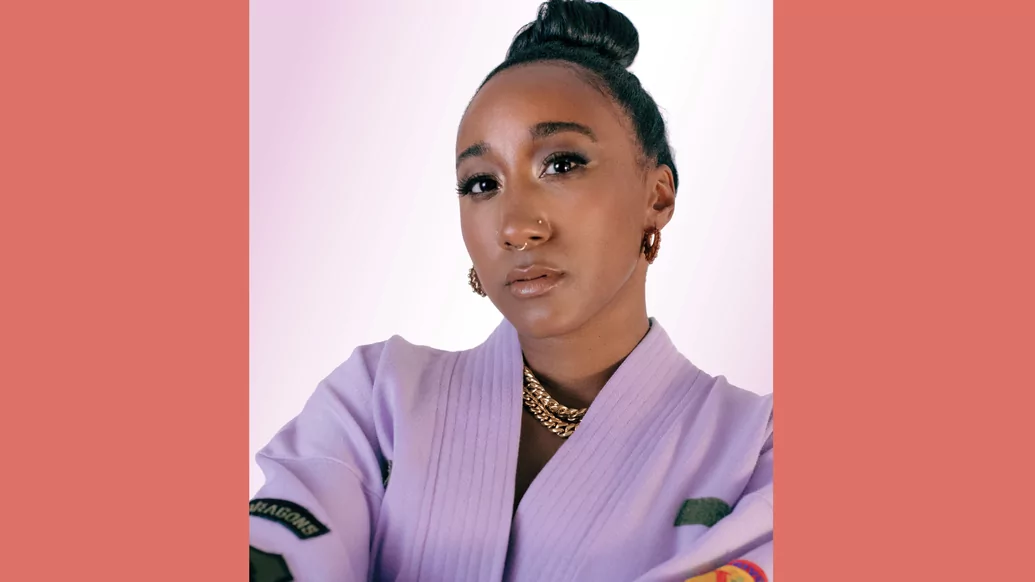
“I’ll be like a fine wine. I get better as I age, and I’m cool with that. I know what work I’ve done and what my credentials are. So whether someone thinks that’s enough or not, I’m not as precious about it anymore, not as fussed about it anymore.”
On the surface she’s the picture of easy-going confidence; at school she was one of those kids who talked to anybody, and “everyone knew me.” But underneath the chirpy outer layer is “actually quite a nervy person. I wonder if we just didn’t have a word for anxiety before, ‘cos I always had butterflies — I used to call them butterflies. It was only when there was more talk around it that I was able to understand it.” Anxiety and social media go together like milkshakes and ducks, of course. Our brains have been remoulded to assess our worth through the quantifiable rewards of likes and follows, and it’s not making us feel good.
“I came off socials for a while recently,” she admits. “I took a three week break and, to be honest, I don’t know how I’ll go back on, but I have to. I’d like to pay someone to do it for me.” But for the generation coming up behind, social media has become the bedrock of youth culture. Gen Z are, so far, more interested in gaming and vlogging than going out raving. That’s why day parties are more popular now, suggest Jamz, because “can you take a good picture in a dark club?”
The way we listen to music is changing, too. “Sometimes people will ask me, ‘Where can I watch the show?’ she laughs. Her sister, who’s 20, finds music “algorithmically. I’m not mad at algorithms, it’s about how you use them.” The A-word: code for the invisible mathematical apparatus that determines the content we consume. “The algorithm” can propel an artist to the top and provide her metrics-based value; Spotify has always touted algorithmic discovery as its game- changing USP. So why did the streaming giant recently spend $100 million acquiring the Joe Rogan podcast, a three-hour talk show powered by one blustering voice? Precisely because he’s not an algorithm.
“I was watching the Blue Note [Records] documentary,” says Jamz by way of comparison, “and it’s just one man’s taste. That’s all you have that makes you different. In a world that’s algorithmic and in a world where we’re so driven by being the same, all you have is the little quirks that make you different. You have to hold onto them.”
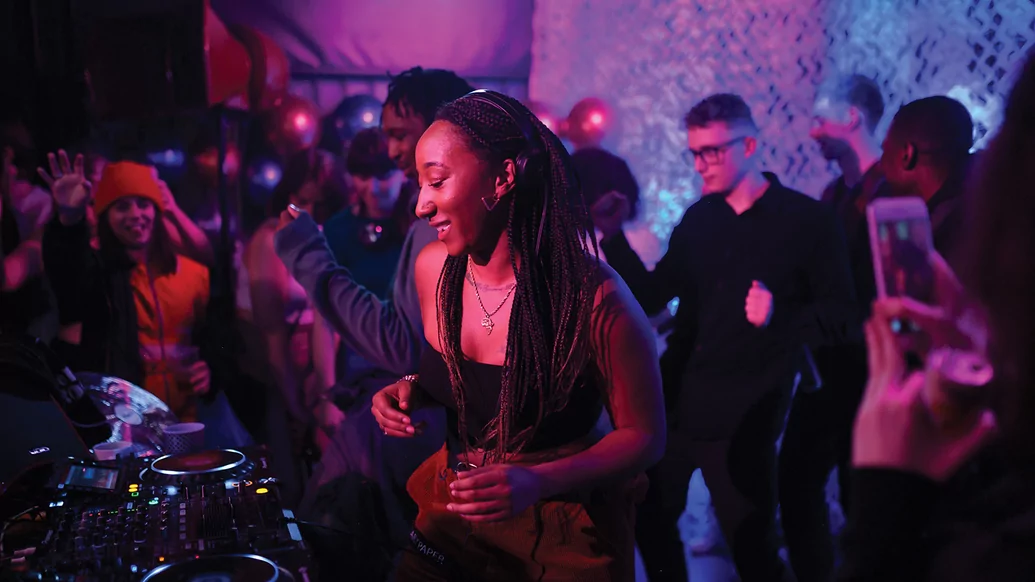

Presenters are indispensable; so are the listeners. When the BBC launched in 1922, its famous remit was to “inform, educate and entertain.” Jamz has her own riff on the Reithian values: “I think my role on radio is to entertain, to educate, and to provide company. When I used to do my Reprezent shows my aunt would always listen. She lived around the corner so I’d go to her house straight after. One day she was like, ‘What you do is so special. I’m listening to you because I want company, and I know that if I tune in on this particular day that you’re going to provide it.’ And I had never really thought about it in that way — I didn’t even think people were listening to begin with! So that changed my perception of radio.
“When we were doing shows in the first lockdown that same feeling came up again, it’s like we had a duty to be on air,” she continues. “I think people really needed it, going through some of the tweets that I was getting — you know, helping people with their anxiety or helping people to escape or to switch off.”
A year on from the first lockdown, clubs are still shut; some of them might never reopen. But radio remains a faint heartbeat on the scanner, keeping us all in touch with a culture and a community that isn’t over yet. Since filming her BBC3 documentary ‘Is This The End Of Clubbing?’, Jamz has felt certain about the resilience of the scene, detecting a resolve that resonates with her own. The chaos of the last few years has left her more committed than ever to her craft. “I’ll be like a fine wine. I get better as I age, and I’m cool with that,” she laughs. “I know what work I’ve done and what my credentials are. So whether someone thinks that’s enough or not, I’m not as precious about it anymore, not as fussed about it anymore.”
What if she woke up and it was all gone? She thinks for a second. “I’d claw my way back in. I can’t really imagine a life without it, if I’m honest. That’s why I never had a backup,” she adds flatly, “because if you have a plan B, that means you don’t truly believe in your plan A.”
